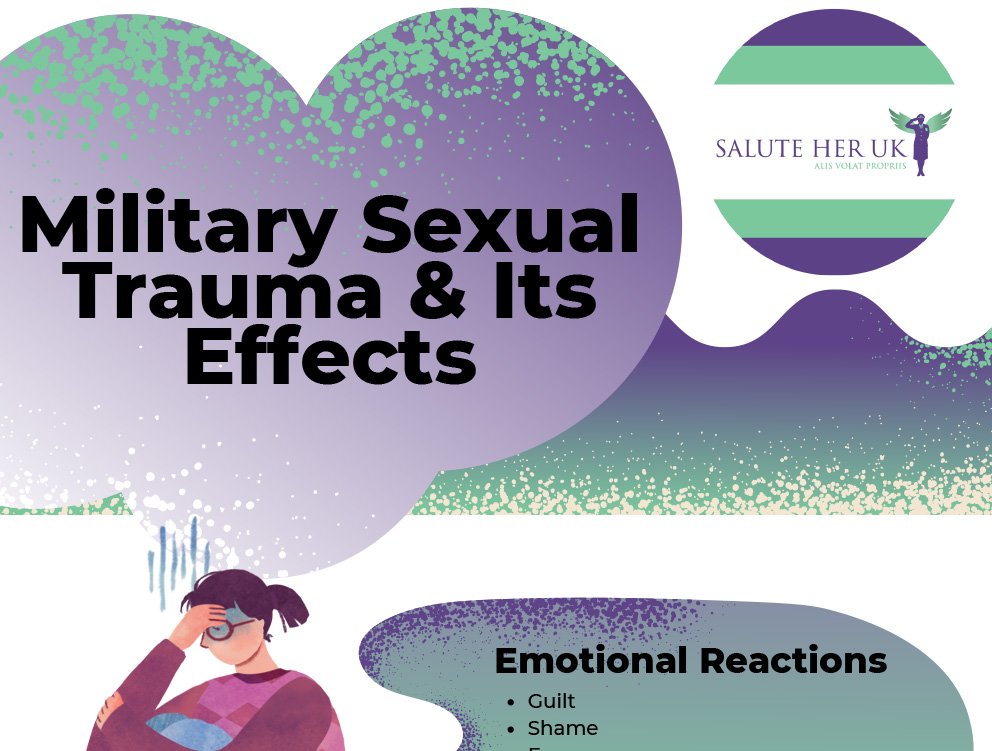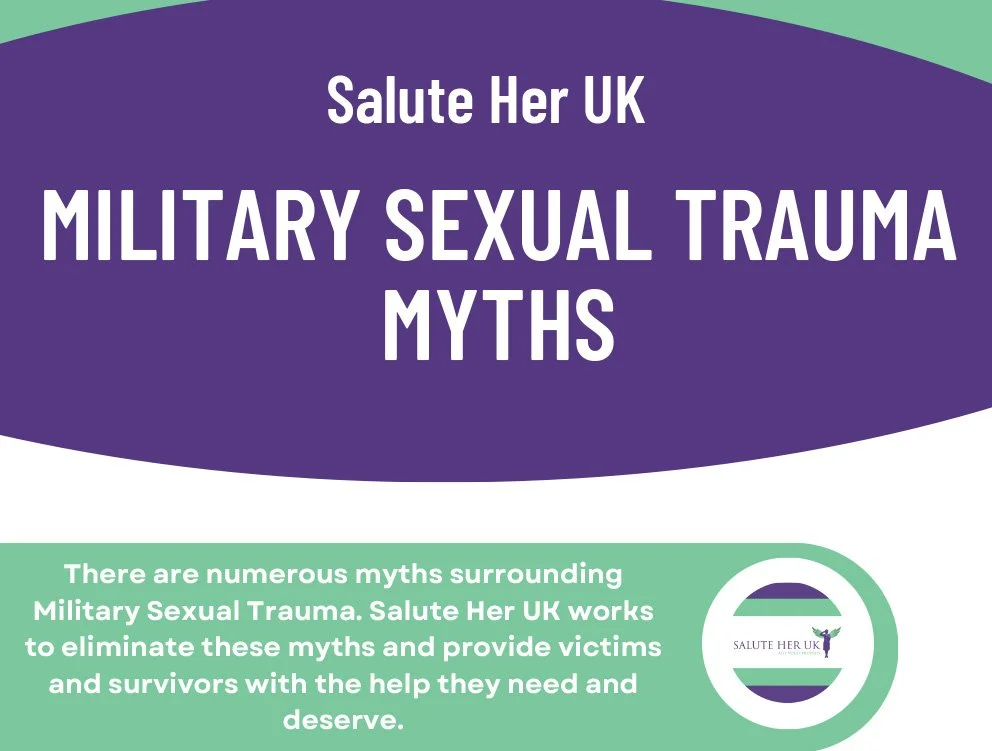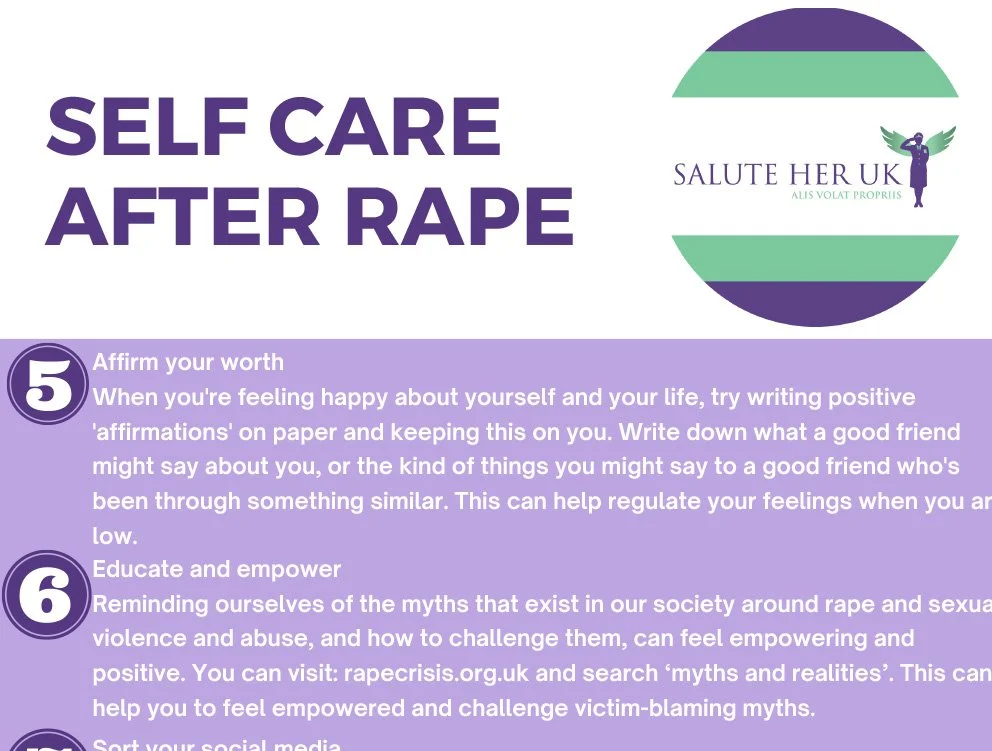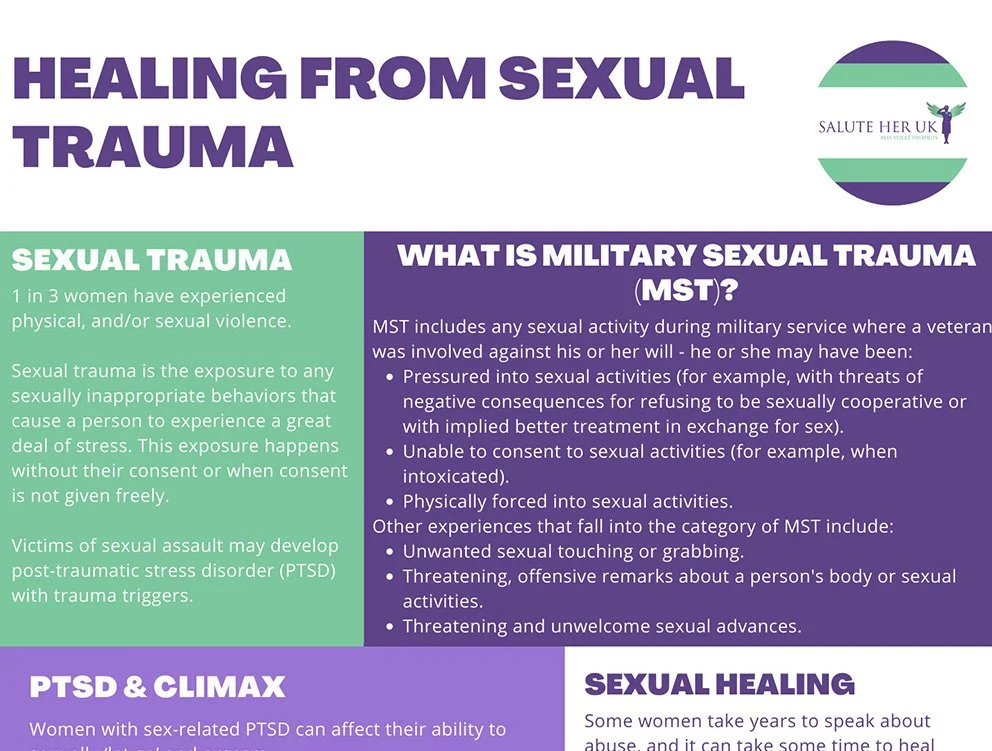
What is Military Sexual
Trauma (MST)?
Military Sexual Trauma, or MST, is not a term recognised by the Ministry of Defence (MOD), or the Office for veterans Affairs in the UK.
In the USA it is used to refer to experiences of sexual assault or repeated, threatening sexual harassment that a veteran experienced during his or her military service.
MST includes any sexual activity during military service where a veteran or a women serving in the armed forces was involved against his or her will - he or she may have been:
pressured into sexual activities (for example, with threats of negative consequences for refusing to be sexually cooperative or with implied better treatment in exchange for sex)
unable to consent to sexual activities (for example, when intoxicated)
physically forced into sexual activities
Other experiences that fall into the category of MST include:
unwanted sexual touching or grabbing
threatening, offensive remarks about a person's body or sexual activities
threatening and unwelcome sexual advances
The identity or characteristics of the perpetrator, whether the veteran was on or off duty at the time, and whether he or she was on or off base at the time do not matter. If these experiences occurred while an individual was on active duty, active duty for training, or inactive duty for training, they are considered to be MST.
How Common is MST?
In America, the Department of Veterans Affairs has a national screening program, in which every veteran seen for health care is asked whether he or she experienced MST. This programme provides data on how common MST is among veterans seen in VA.
National data from this program reveal that about 1 in 3 women and 1 in 50 men respond 'yes', that they experienced MST, when screened by their VA provider. Although rates of MST are higher among women, because there are so many more men than women in the military, there are actually significant numbers of women and men seen in VA who have experienced MST.
How Can MST Affect Veterans?
Although trauma can be a life-changing event, people are often remarkably resilient after experiencing trauma. Many individuals recover without professional help; others may generally function well in their life but continue to experience some level of difficulties or have strong reactions in certain situations. For some veterans, the experience of MST may continue to affect their mental and physical health in significant ways, even many years later.
Military Sexual Trauma (MST) is an experience, not a diagnosis or a mental health condition, and as with other forms of trauma, there are a variety of reactions that veterans can have in response to MST.
The type, severity, and duration of a veteran’s difficulties will all vary based on factors like whether he/she has a prior history of trauma, the types of responses he/she received from others at the time of the MST, and whether the MST happened once or was repeated over time.
Although the reactions men and women have to MST are similar in some ways, they may also struggle with different issues. Race/ethnicity, religion, sexual orientation, and other cultural variables can also affect the impact of MST.
Some of the reactions that survivors of MST may have include:
Strong emotions: feeling depressed; having intense, sudden emotional reactions to things; feeling angry or irritable all the time, feelings of numbness: feeling emotionally ‘flat’; difficulty experiencing emotions like love or happiness
Trouble sleeping: trouble falling or staying asleep; disturbing nightmares, difficulties with attention, concentration, and memory: trouble staying focused; frequently finding their mind wandering; having a hard time remembering things
Problems with alcohol or other drugs: drinking to excess or using drugs daily, getting intoxicated or “high” to cope with memories or emotional reactions, drinking to fall asleep
Difficulty with things that remind them of their experiences of sexual trauma: feeling on edge or ‘jumpy’ all the time, difficulty feeling safe, going out of their way to avoid reminders of their experiences
Difficulties in relationships: feeling isolated or disconnected from others; abusive relationships; trouble with employers or authority figures; difficulty trusting others
Physical health problems: sexual difficulties; chronic pain; weight or eating problems; gastrointestinal problems
Although posttraumatic stress disorder (PTSD) is commonly associated with MST, it is not the only diagnosis that can result from MST. For example, the diagnoses most frequently associated with MST among users of VA health care are depression and other mood disorders, and substance use disorders (Adapted from the US Department of Veterans Affairs website).
Fortunately, people can recover from experiences of MST, and Salute Her UK has designed specialist services to help with this.
Below you will find some educational literature to help understand Military Sexual Trauma.
Military Sexual Trauma & Its Effects
Military Sexual Trauma Myths
Self Care After Rape
Virtual Military Sexual Trauma Group
Healing From Sexual Trauma
Click link to take you to Our Services





